NORTH STARS:
Waste Management
Certifications
Production & Consumption
“What if your daily flossing habit is silently contributing to the plastic pollution crisis?”
What if your daily flossing habit is silently contributing to the plastic pollution crisis?
Flossing is an essential part of oral hygiene; however, only one-third of Americans floss daily, while another one-third never floss at all. never floss at all. Despite this, the dental floss market is experiencing significant growth, with sales last year surging 37% higher than four years prior and outpacing inflation. The industry is projected to grow at 8% annually over the next decade.
This surge parallels a shift toward sustainability. Typically, manufacturers of traditional dental floss use nylon or Teflon (PTFE), petroleum-based plastics that are not biodegradable. Alarmingly, an estimated 1.5 billion plastic floss containers are discarded each year in the U.S. alone. Additionally, approximately 4.7 billion plastic floss picks are thrown away annually in North America.
In response, many brands are introducing eco-friendly alternatives made from silk, bamboo, and plant fibers. These materials are not only biodegradable but also free from harmful chemicals like PFAS, commonly found in Teflon-coated floss. Packaging innovations include paper-based and refillable containers, reducing plastic waste further.
The Cost to Floss
While sustainable dental floss typically comes at a higher upfront cost, the actual difference per use is smaller than you might think. A typical flossing session uses about 18 inches. Traditional plastic floss costs roughly 3 cents per use, while silk- or plant-based versions run closer to 15 cents — a 12-cent difference. That adds up to about $3.60 more per month or $44 annually if you floss daily. For many consumers, the environmental benefit — reducing plastic waste and avoiding harmful chemicals — is reason enough to make the switch.
To help offset the cost, several brands offer refillable floss dispensers and discounted subscription plans, which lower the price over time. Buying multi-pack refills or choosing compostable floss in bulk can also bring down the cost per use. The added perks of toxin-free coatings, plastic-free packaging, and more ethical sourcing make the tradeoff feel less like a splurge and more like a smarter daily habit.
While we’re constantly searching for new brands (please reach out if you know one!), our experts have selected these six options worth considering.
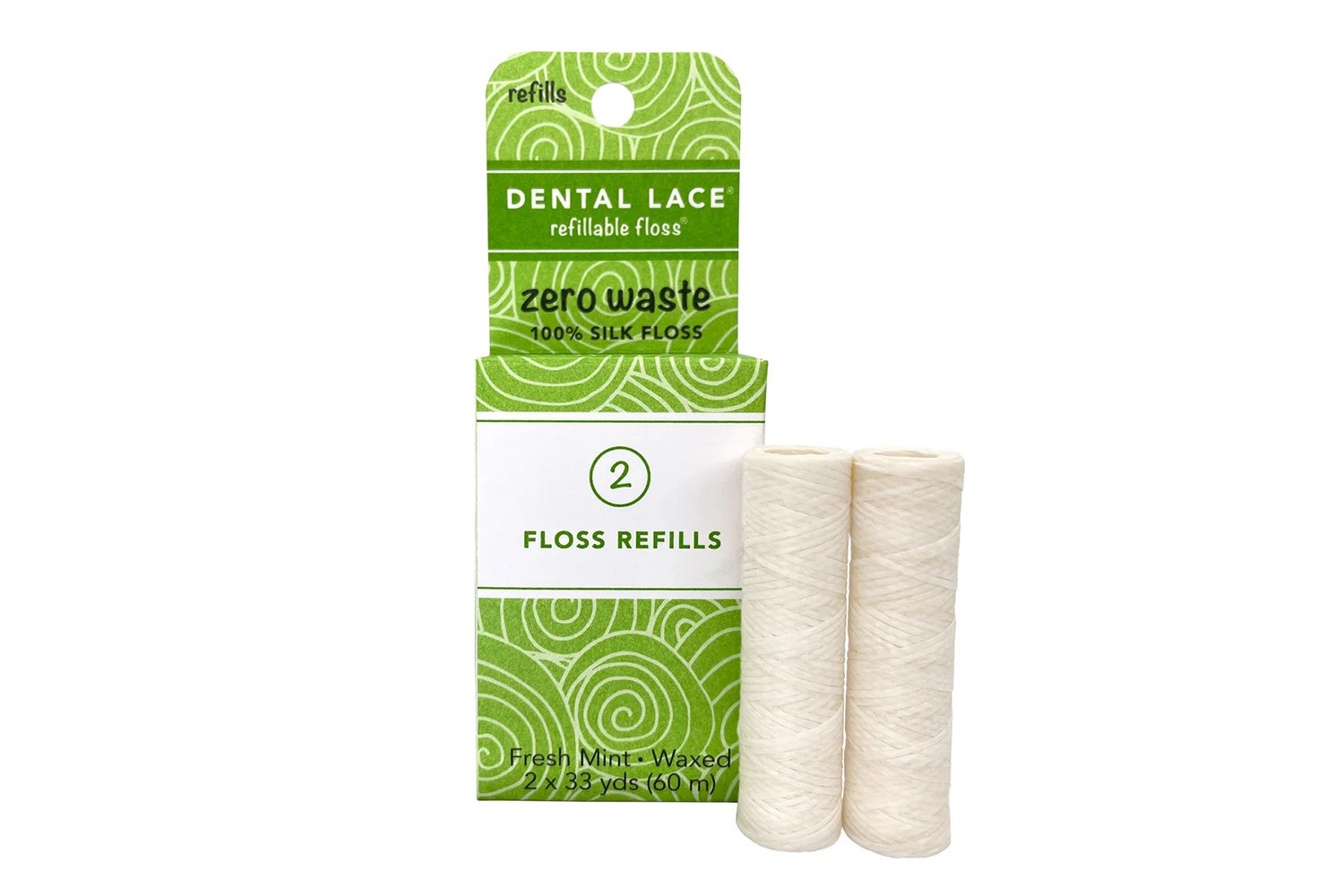
Zero-waste floss from Dental Lace. Courtesy of Dental Lace
Dental Lace
Dental Lace, founded in Maine, may be the most eco-forward brand in the entire market. The company’s founder designed the product – the floss, container, and outer packaging – without plastic to create zero waste for the consumer. Though new owners took over in January, they plan to continue expanding the business while adhering to its founding principles. Dental Lace has won numerous accolades, including recognition by Martha Stewart, as well as has earned B-Corp Certification. The floss is made from Italian silk or plant-based vegan material, both considered biodegradable. The refillable glass container comes topped with a stainless steel lid. When you order a refill, it ships in compostable bags.
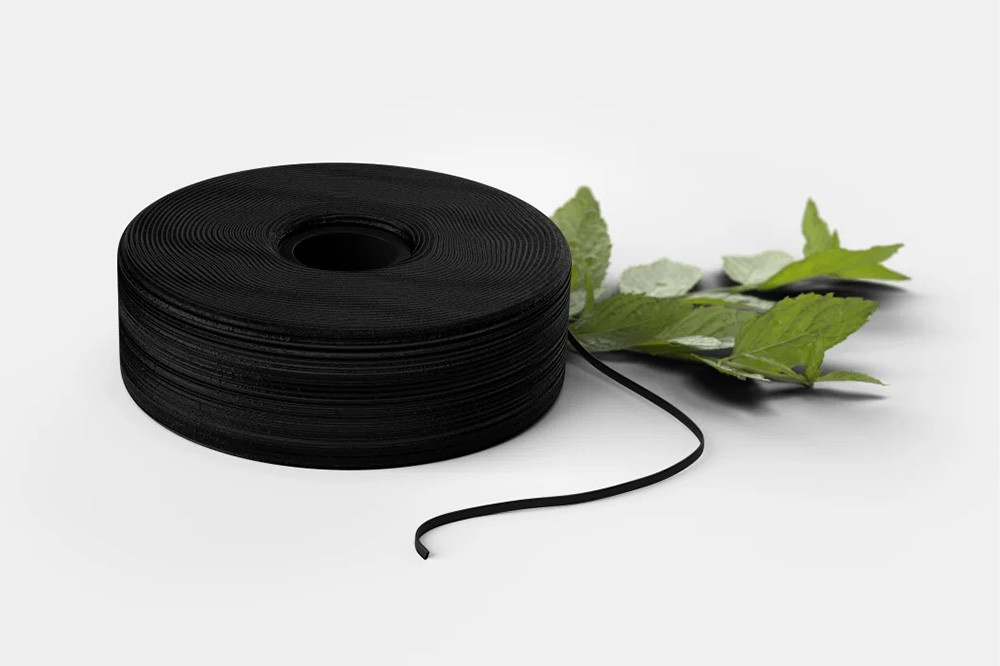
Charcoal-coated dental floss from Burst. Courtesy of Burst
Burst
Bursting on to the scene less than a decade ago, this direct-to-consumer company has two unusual (some might say gimmicky) features – black-hued, expanding floss. The black charcoal coating reveals the visible remains of your meals (think of the dental floss equivalent of a Biore strip) and the floss expands when wet, theoretically providing more surface area to scrub your teeth. Burst offers refillable packaging, uses 95% recycled plastic, and is free from BPA, parabens, Teflon, and PFAS.
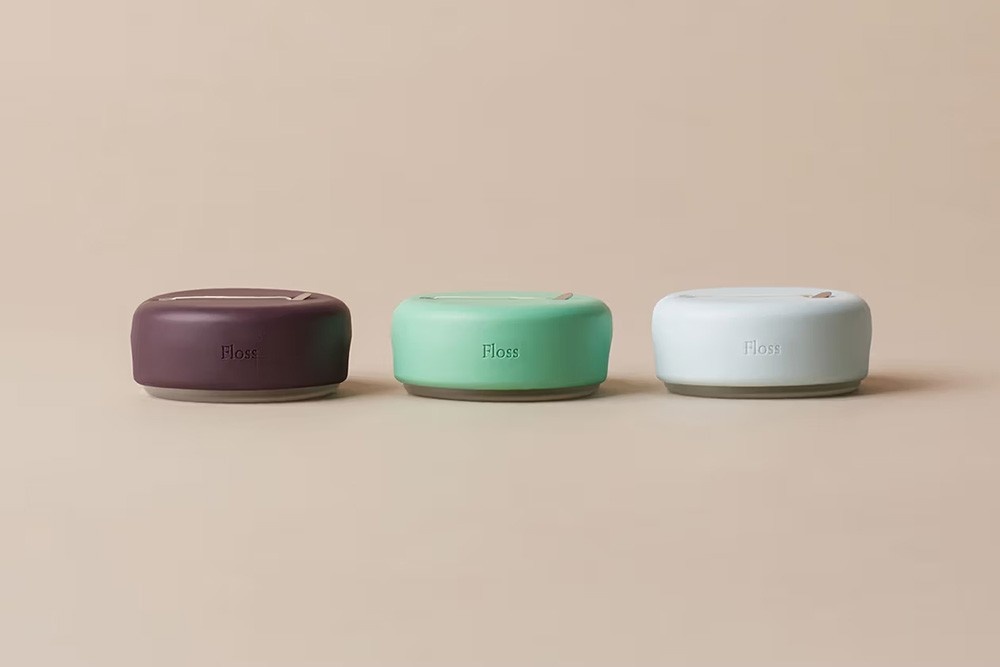
by Humankind's aesthetically-pleasing dental flosses. Courtesy of by Humankind
by Humankind
While Burst focuses on oral care, by Humankind covers the whole range of bathroom items in a personal care regime, with a stated goal of reducing single-use plastic in daily routines. Their floss, manufactured in Italy (this is a theme) from 100% biodegradable silk coated with vegan wax, is wound around a sugarcane-based bioplastic spool. Two essential oils, peppermint and cardamom, provide refreshing flavor, while Jojoba oil allegedly has healing properties (Native Americans used it treat sores and wounds.) The refillable glass containers are topped by silicone caps with four matte color options. Subsequent floss replacements ship in compostable pouches.
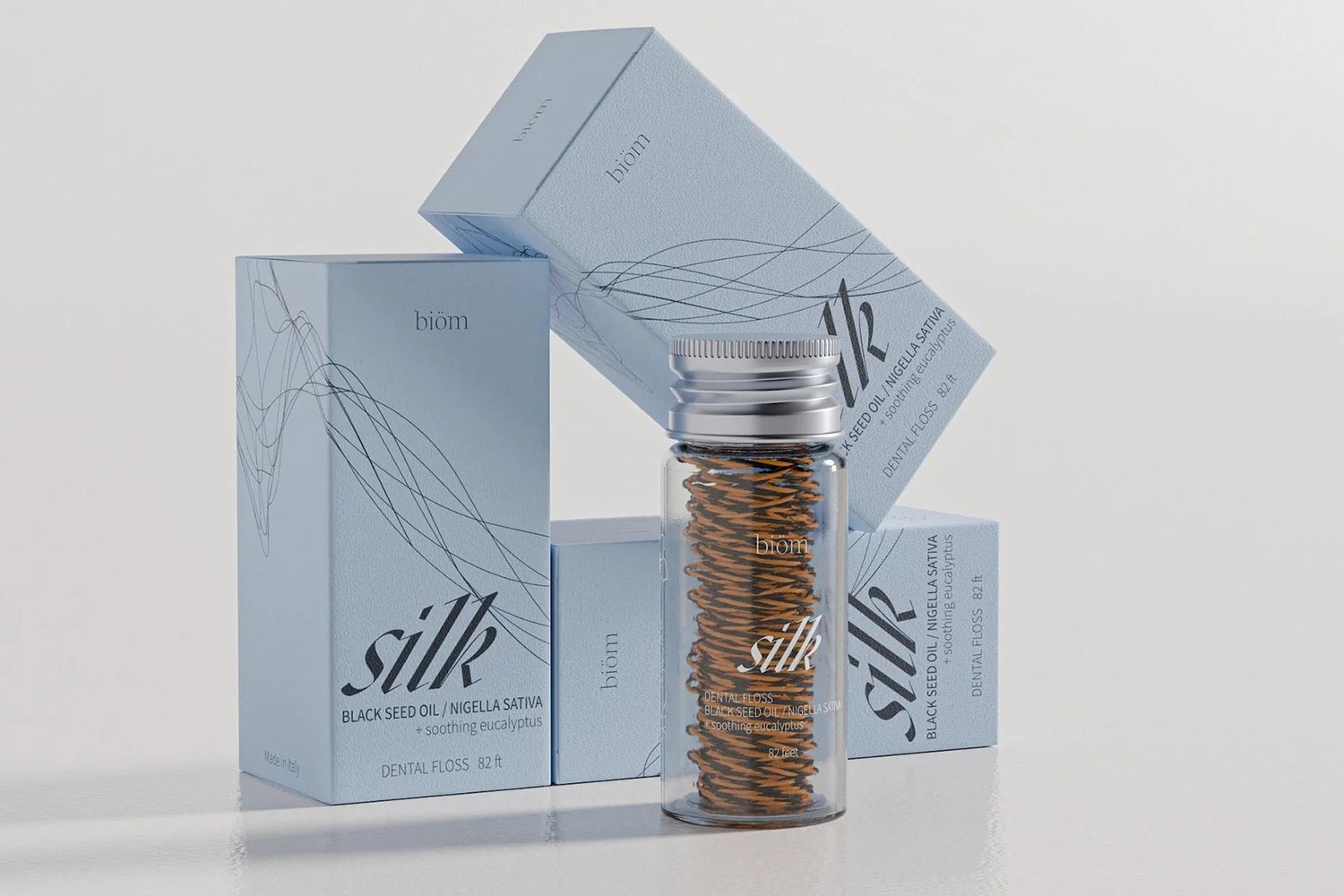
Refillable dental floss from Biom. Courtesy of Biom_
Biom
Another dentalcare-focused brand, Biom touts its environmental awareness and clean ingredients. Like by Humankind, they offer a subscription service in which the customer first buys a glass jar with a dispenser and orders refills for 20% savings. The brand’s silk expanding floss, striped in black and orange, comes infused with nigella sativa, an antimicrobial from black seed oil, and natural eucalyptus.
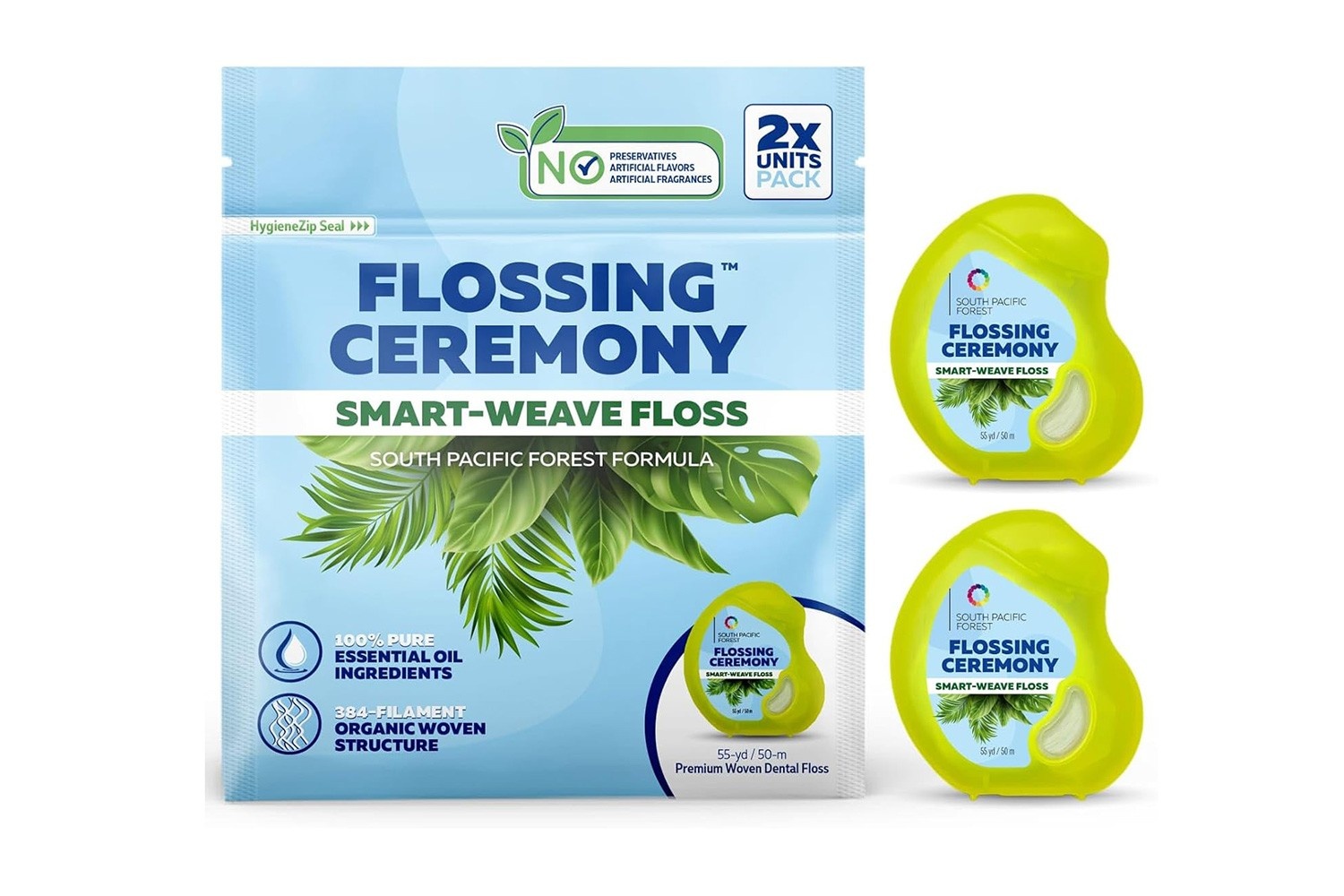
Vegan dental floss from Flossing Ceremony. Courtesy of Flossing Ceremony
Flossing Ceremony
You can find this relatively obscure Italian brand, imported into the US by a Spanish company, on Amazon, Walmart, and Sustai market (sustainable household products). Their floss is vegan, free of PFAS, preservatives, and artificial flavors. It’s infused with eucalyptus and manuka essential oils, or what they call a “South Pacific Forest” formula, and is packaged in a refillable dispenser. Subsequent refills come packaged in paper bags.
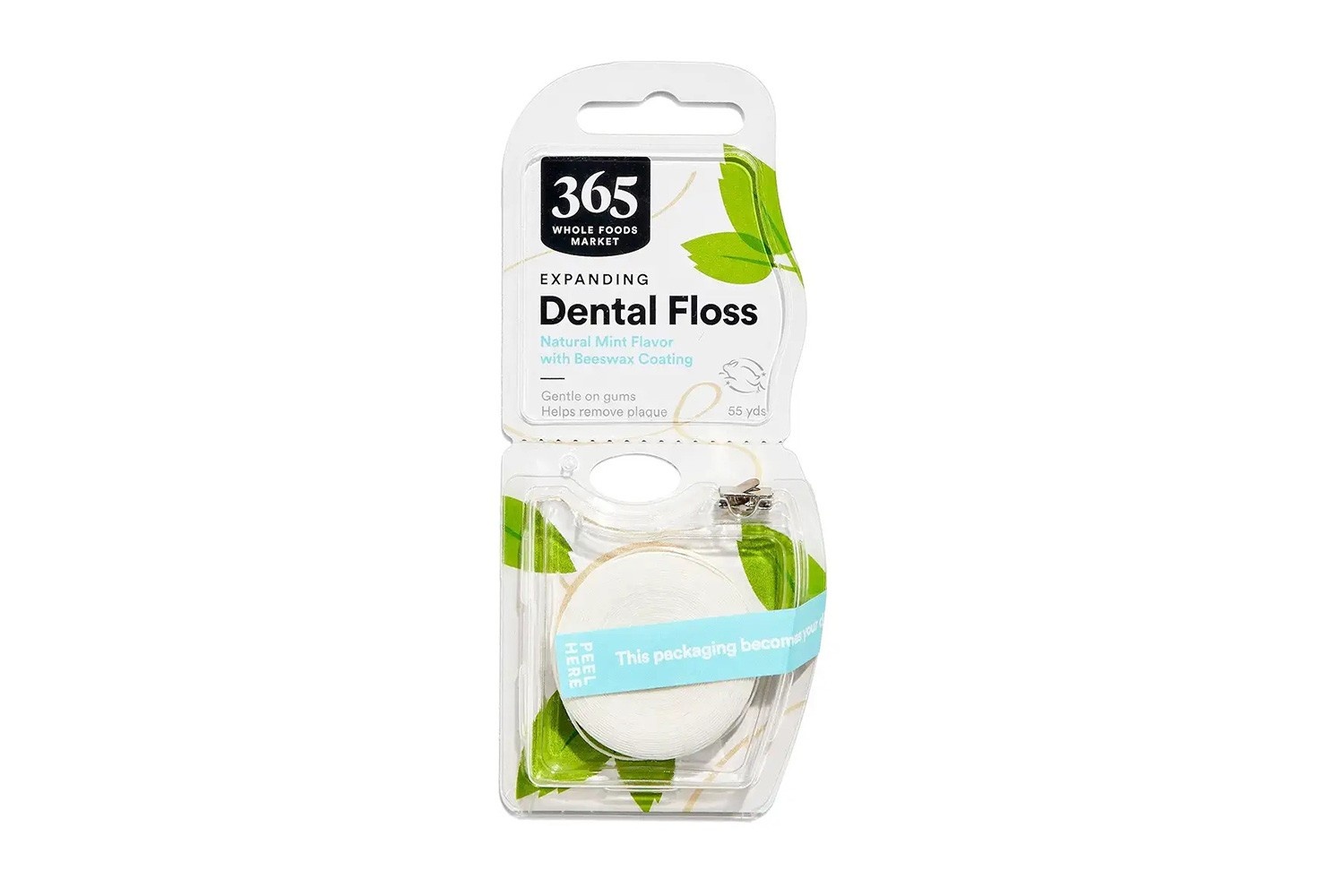
365 offers dental floss made from recycled plastic. Courtesy of 365 Brand
365 by Whole Foods Market
Made in Italy, Whole Foods and Amazon sell the 365 brand of floss. After you tear off the perforated top, the transparent plastic packaging serves as the dispenser. Floss, formed from recycled plastic, expands after it hits your saliva. This creates better contact with your teeth and improves cleaning performance. It’s also one of the least expensive options on the market.
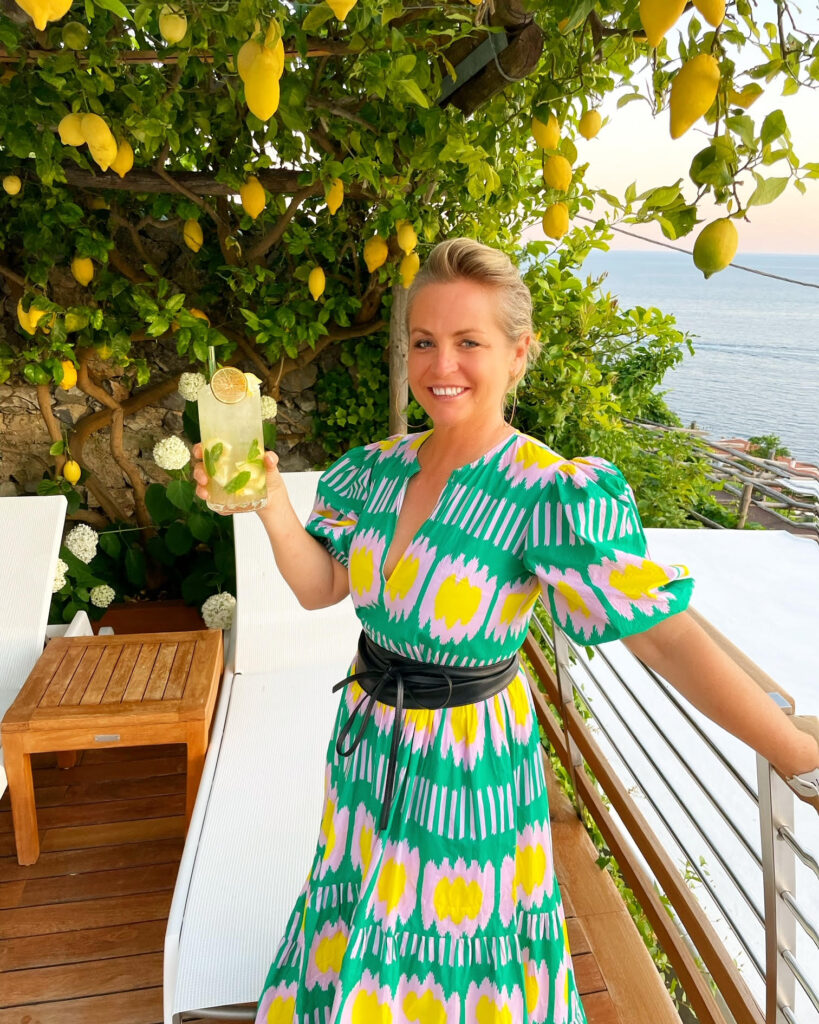
Founder and CEO of Azure Road, Lauren Mowery is a longtime wine, food, and travel writer. Mowery continues to serve on Decanter Magazine’s 12-strong US editorial team. Prior to joining Decanter, she spent five years as the travel editor at Wine Enthusiast. Mowery has earned accolades for her writing and photography, having contributed travel, drinks, food, and sustainability content to publications like Food & Wine, Forbes, Afar, The Independent, Saveur, Hemispheres, U.S. News & World Report, SCUBA Diving, Plate, Chef & Restaurant, Hotels Above Par, AAA, Fodors.com, Lonely Planet, USA Today, Men’s Journal, and Time Out, among others.
Pursuing her Master of Wine certification, she has also been a regular wine and spirits writer for Tasting Panel, Somm Journal, VinePair, Punch, and SevenFifty Daily. Mowery is a graduate of the University of Virginia and Fordham Law School, and she completed two wine harvests in South Africa.
Follow her on Instagram @AzureRoad and TikTok @AzureRoad
North Stars: Certifications, Production & Consumption, Waste Management



